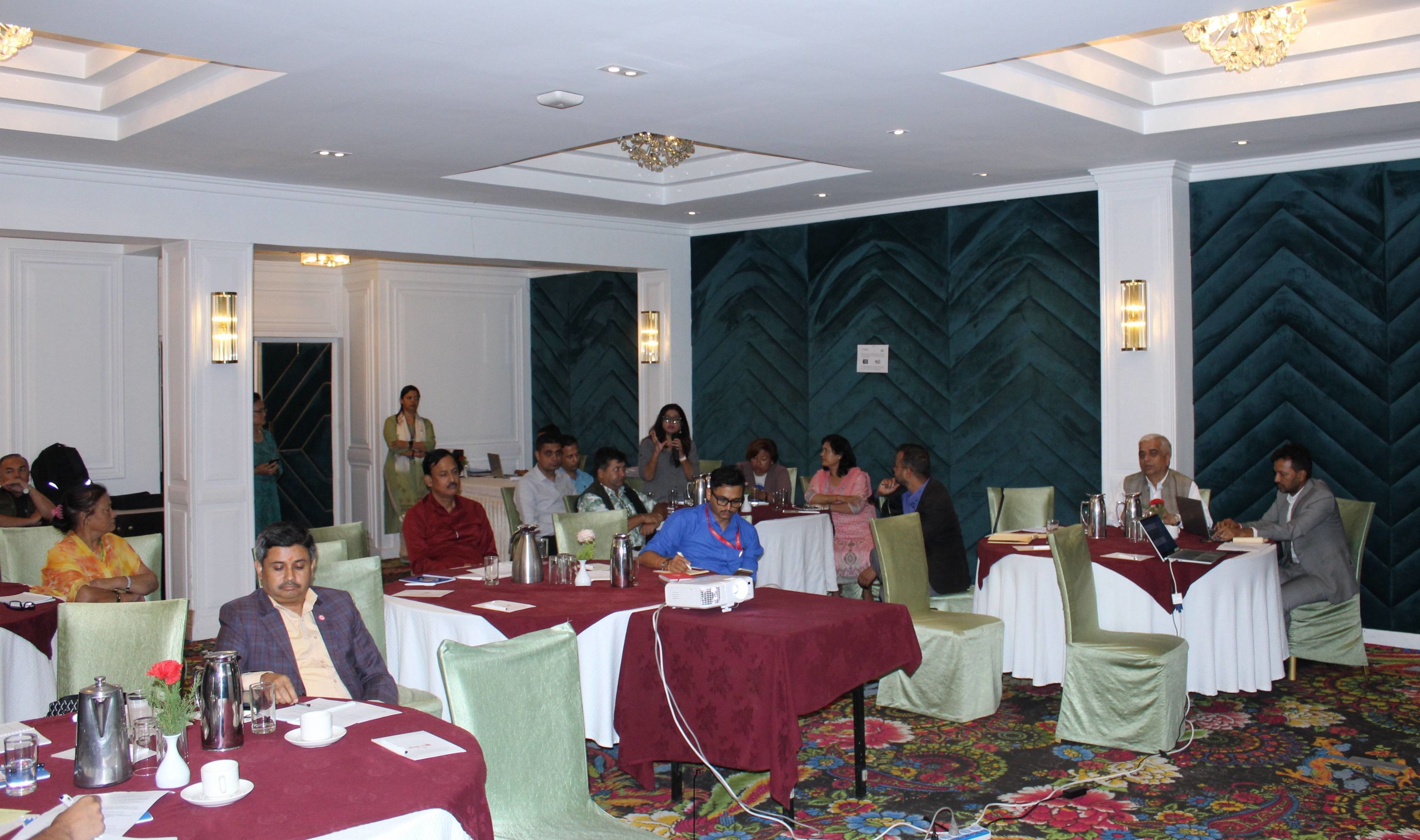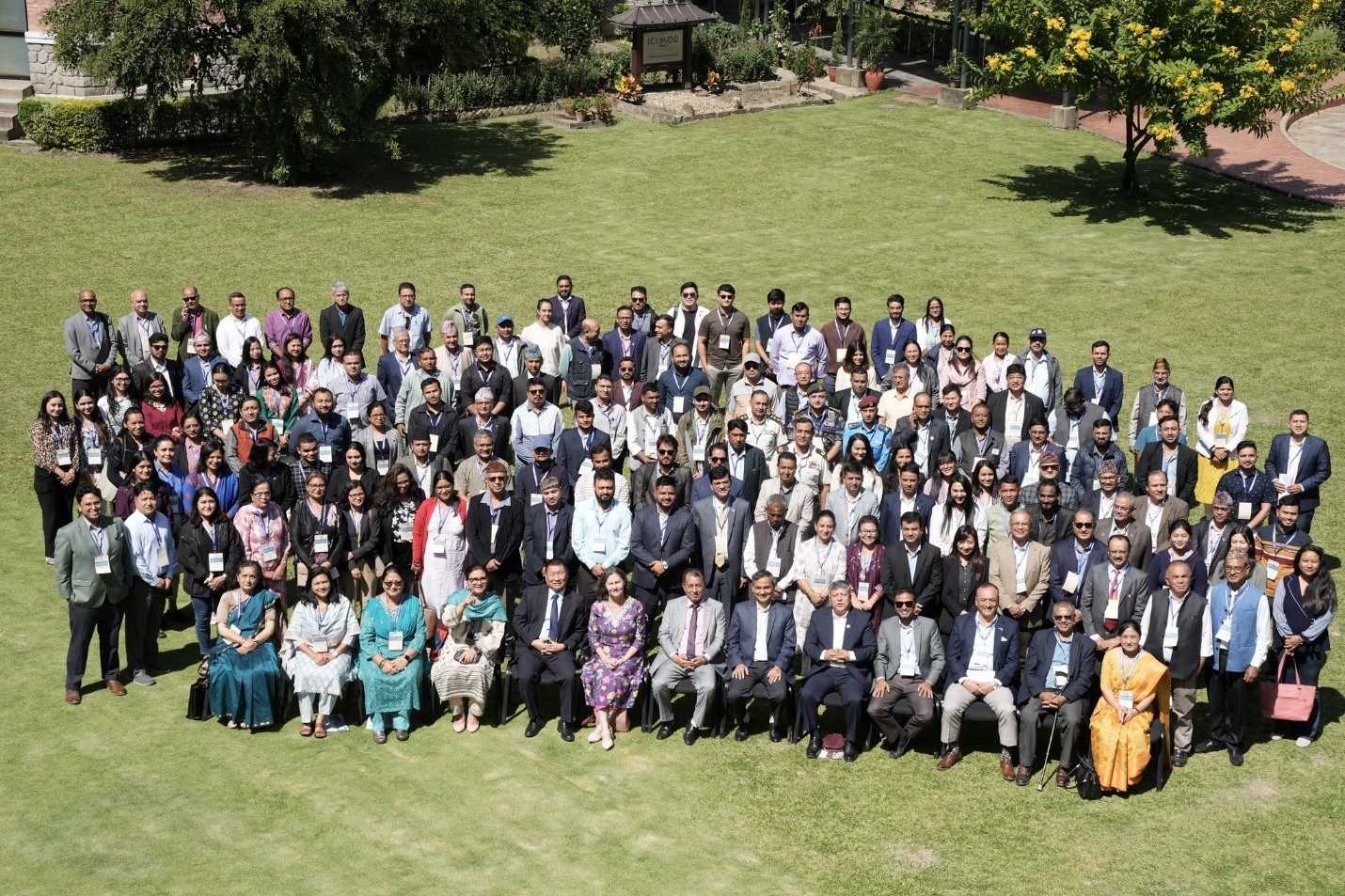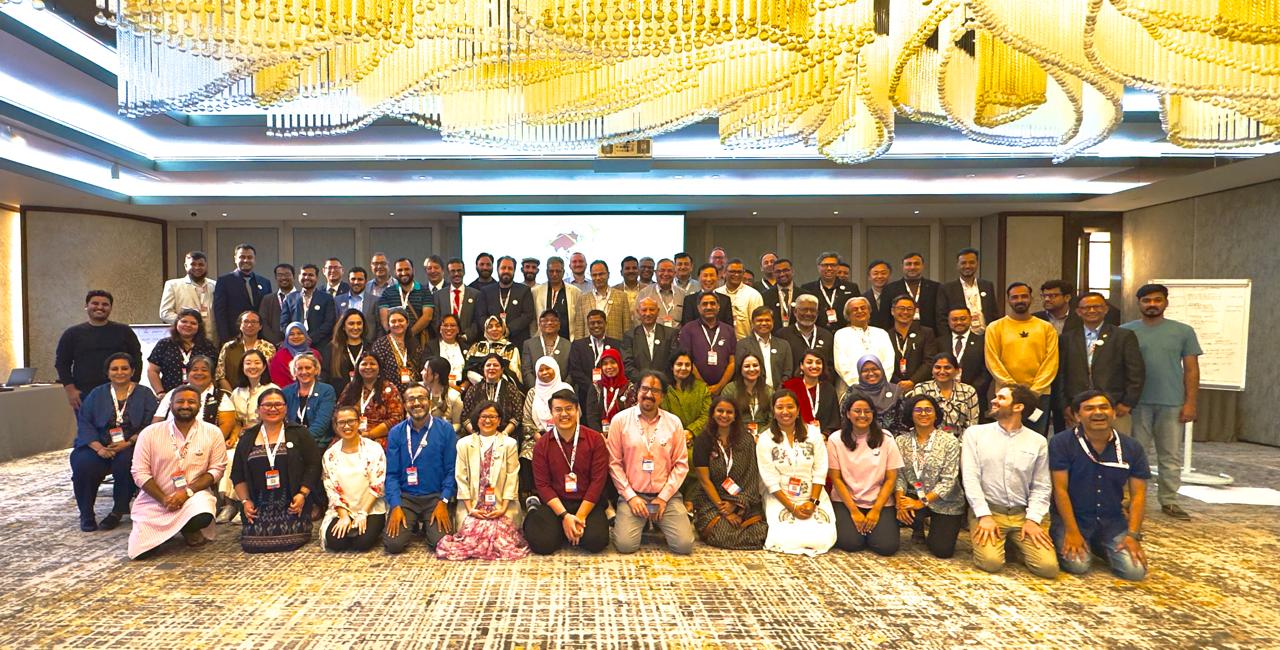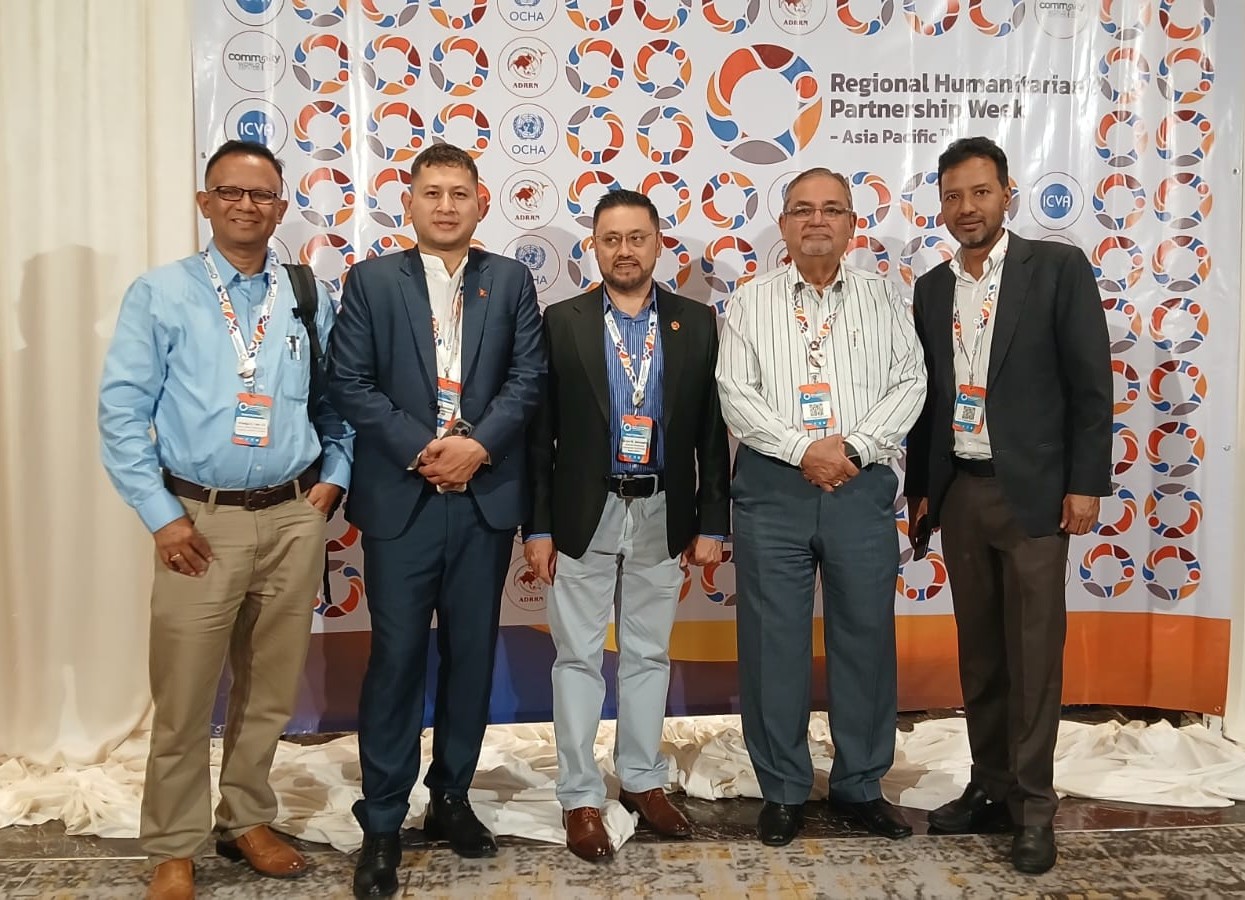Policy Dialogue to Engage Non-Governmental Stakeholders for Coordinated Disaster Risk Management

DPNet Nepal, in collaboration with USAID’s Tayar Nepal, conducted a Policy Dialogue to Engage Non-Governmental Stakeholders for Coordinated Disaster Risk Management on September 7, 2023. The event aimed to enhance collaboration and engagement of the private sector, international NGOs, local communities, and other stakeholders for promoting a sustainable and resilient approach to disaster response and recovery and develop a recommendation paper for mobilizing stakeholders for coordinated disaster response. The event witnessed representatives from NDRRMA, INGO/NGOs, Academia, and the Private Sector.
Dr. Raju Thapa, Acting Chair of DPNet-Nepal and Program Chair emphasized the crucial role of engaging non-governmental stakeholders in Coordinated Disaster Risk Management. He highlighted 25 different roles and responsibilities of NDRRMA and stressed the need for government agencies to be more accountable. Dr. Thapa raised questions about the drafting of NGO mobilization guidelines, questioning their relevance without an NGO mobilization act. He also inquired about the cash support mechanism in the Monsoon Preparedness Plan, specifically whether it is limited to UN Agencies or open to other NGOs. He emphasized that involving non-governmental stakeholders in Disaster Risk Management is essential for a comprehensive and effective approach to all stages of the Disaster Management Cycle.
Mr. Bamshi Kumar Acharya, DRRM Policy and Governance Expert, presented on the "Role of Non-Governmental Organizations in DRRM." He highlighted three perspectives on DRRM, the need for collaboration between government and non-governmental agencies, and the importance of coordination and engagement of non-governmental stakeholders for effective disaster management. Mr. Acharya explained the provisions for engaging the non-government sector in DRRM, starting from the National Strategy for Disaster Risk Management (NSDRM 2009) and other relevant policies and regulations at the federal, provincial, and local levels. He pointed out that Development Aid Mobilization standards have played a crucial role in coordinating NGOs and the government for better Disaster Risk Reduction practices. Mr. Acharya identified challenges and gaps in four major areas: provisional challenges due to limited policies, institutional challenges in representation, operational challenges in role delineation, and behavioral challenges in collaboration. He called for a clear policy framework to eliminate jurisdictional complexities and define the powers of different government tiers. He also stressed the need to partner with academia, media, community-based organizations, and volunteers for information dissemination and community engagement. Mr. Acharya emphasized the importance of a robust system for situation tracking, monitoring, and feedback collection to enhance responsiveness and collaboration.
Mr. Prem Awasthi, Humanitarian Coordination Officer at UNRCO, discussed "Engaging International Organizations for Coordinated Disaster Management." He highlighted the importance of international and regional collaboration in disaster management and shared examples of global practices, including Nepal's role in disaster response efforts. Mr. Awasthi emphasized the need for global governance in disaster management, focusing on human and financial deployment and coordination.
Mr. Hemanta Dangal, AINTGDM, pointed out that non-governmental organizations focus more on consultation and recovery than decision-making, leading to gaps in field-level practices. He stressed the need to integrate non-governmental stakeholders and address law-related dilemmas in disaster risk reduction efforts.
Ms. Shanti Mahat, Section Officer at NDRRMA, mentioned that Organization Mobilization guidelines for DRR are in the drafting process. She shared guiding principles for partner organizations, including the one-door policy to prevent resource duplication, coordination of multi-stakeholders, and inclusion of disaster-vulnerable groups. Ms. Mahat highlighted areas of work for partner organizations in DRR.
Ms. Sunita Kayastha, Emergency Specialist at UNICEF, emphasized the need for private sector engagement and policy dialogue between government sectors and non-governmental stakeholders.
Mr. Santosh Pandey, Project Manager at Mercy Corps, highlighted the importance of coordination among governmental stakeholders.
Ms. Sarita Thulung, Chairperson at NDWA-CSPD-N, stressed the need to prioritize people with disabilities in disaster risk reduction efforts.
Ms. Luna Khadka, DRR and H Specialist at World Vision International discussed the need for better coordination among stakeholders.
Mr. Rabin Dahal, Coordinator at Save the Children, emphasized the importance of need assessment and standardized legal documents.
Mr. Krishna Ghimire, Program Coordinator at NDRC, pointed out the need for business continuity plans, CSR mobilization guidelines, and improved information management.
Mr. Saroj Pokharel, Program Head at ActionAid Nepal, emphasized policy harmonization and addressing coordination gaps among stakeholders.
Ms. Rama Dhakal, General Secretary at FWDN, stressed the inclusion of organizations working with people with disabilities in discussions and clarifying roles of authorities.
Mr. Dharmaraj Joshi, Land and Advocacy Specialist at Habitat for Humanity, called for stakeholder mapping and clear role division among stakeholders.
Ms. Mangala Karanjeet, General Secretary at BPW Nepal, highlighted gaps in policy coordination.
Mr. Bhakta Hamal, Chairperson of Health and Disaster Sub-committee at FNCCI, discussed the private sector's role in disaster preparedness and the need for guidelines and monitoring.
Mr. Jit Ram Lama, Executive Director at ARSOW, suggested streamlining project approval related to DRR for efficiency.
Ms. Krishna Karki, USAID Tayar Nepal, discussed using policy dialogue feedback for policy revisions involving government stakeholders.
Dr. Raju Thapa, the Session Chair recommended a fundamental shift in policy to include cluster provisions and strengthened engagement with non-government stakeholders. He advocated for the establishment of a dedicated entity for monitoring and situation tracking to enhance disaster management. Dr. Thapa thanked all participants and mentioned that the recommendations would be delivered to the government as policy feedback.











